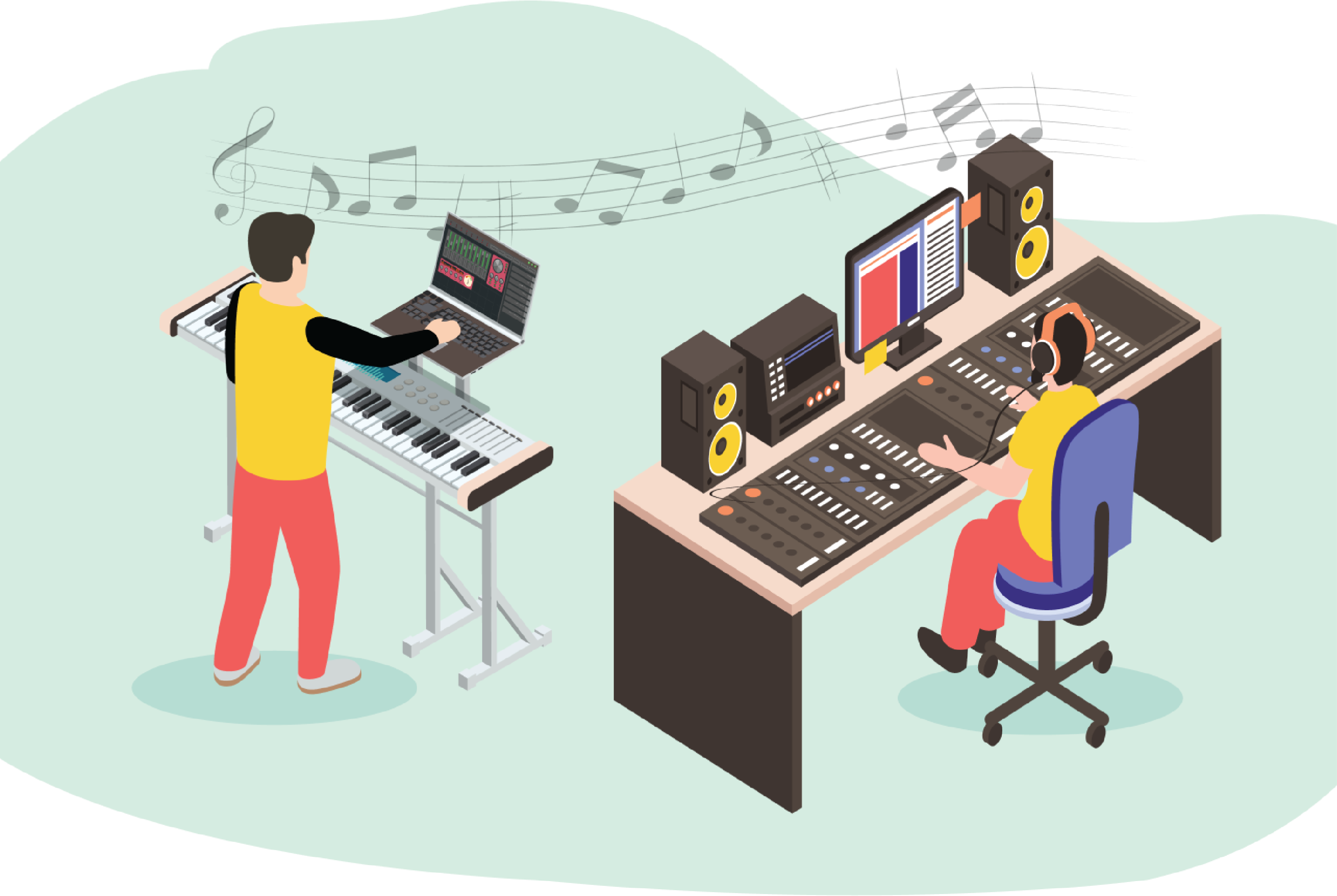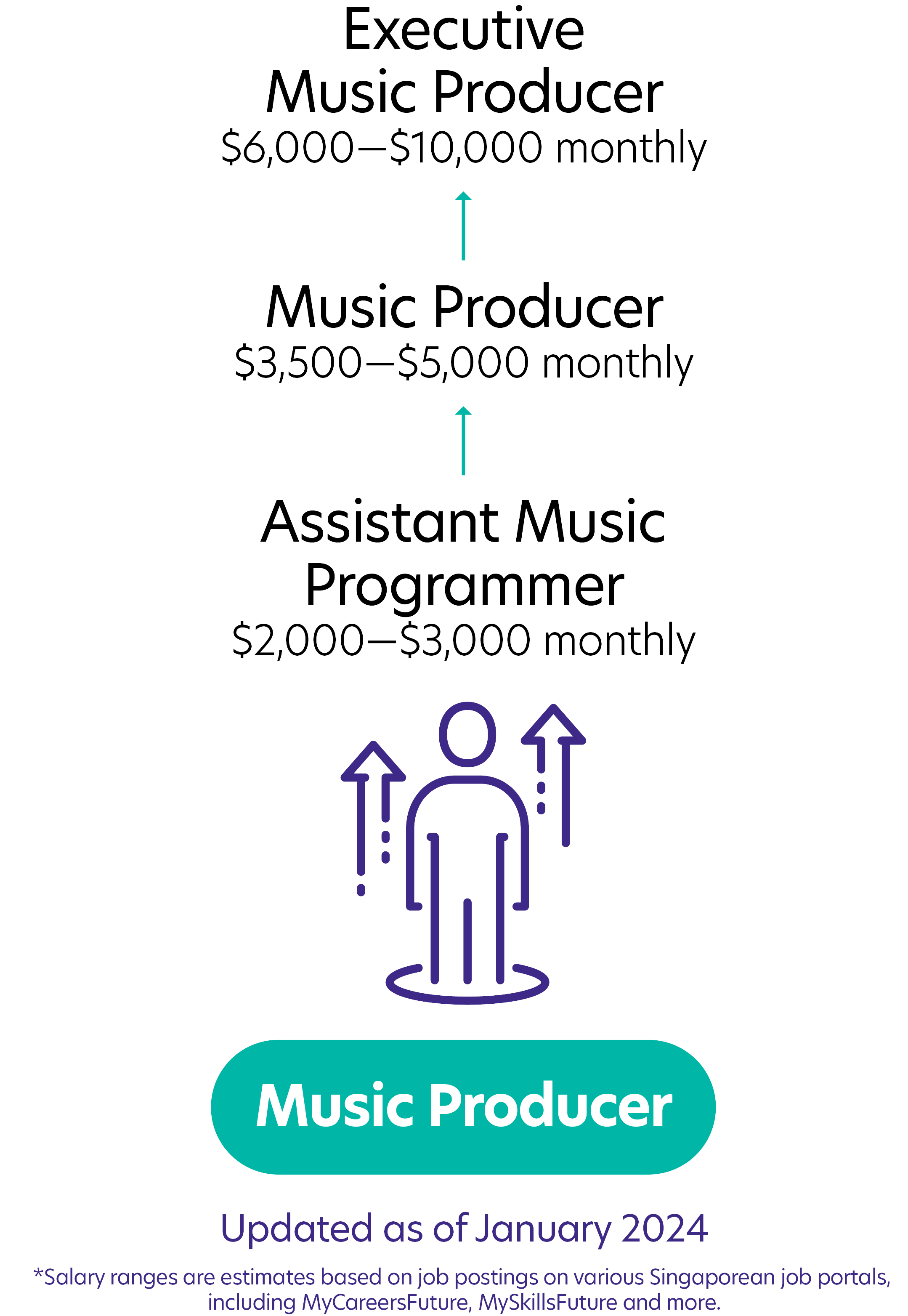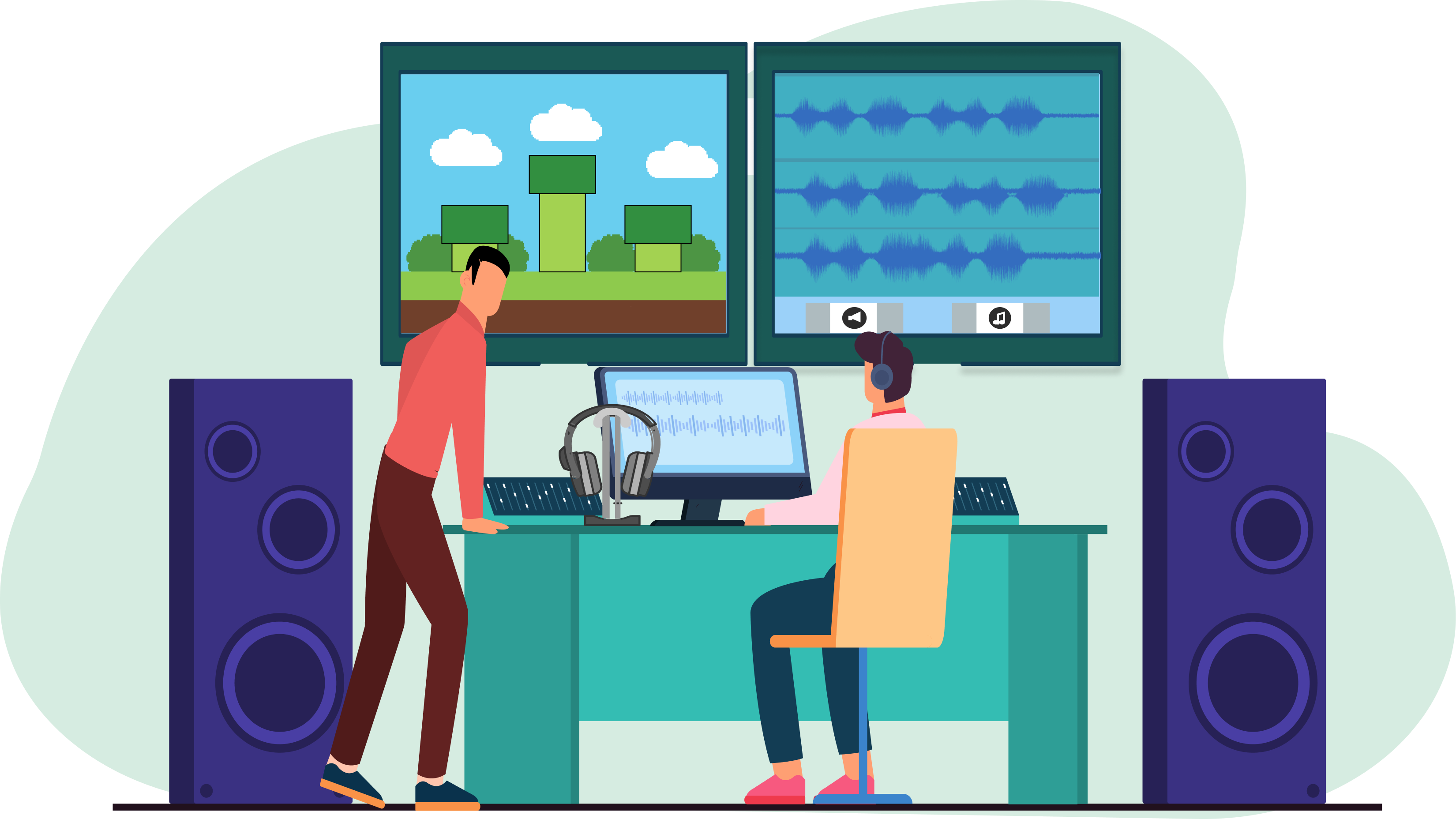
Music Producers oversee all aspects of a music recording project, from conceptualising, to mixing and finally, mastering the final album or single.
Music Producer Job Description
- Audition and select recording Musicians and Artists.
- Conceptualise creative approaches to record music.
- Guide and coach Recording Artists through rehearsals and recordings during a music project.
- Handle and manage funds, costs and negotiations.
- Work with Sound Engineers to track the post-production process from mixing to editing the recorded music.
- Promote and publicise creative work.
- Write, arrange and create original music and compositions.
Note
Music Producers often play multiple roles: Composer, Sound Engineer, and Mentor. Phil Spector created the "Wall of Sound" in the 1960s, with dense, layered, and echoing sound techniques, showcasing his versatility as a Music Producer!
What you should know about Music Producer jobs in Singapore
Nature of Work
You will oversee Music Production, from composition to recording, mixing and ensuring the project’s vision and sound quality are achieved.Key Advice
Being successful Music Producers require constant hard work and building on connections to be unique and secure future projects.-
Entry RequirementsEntry Requirements
- Although you don’t necessarily need a Grade 8 in Music Theory, it is good to build a portfolio of projects on which you have worked to show to prospective clients.
- Understanding the basics of music software and hardware such as digital audio workstations (DAWs) and MIDI controllers is essential during track production!
- Listen to different types of music and craft your own personal producing style to build a portfolio.
-
Possible PathwayPossible Pathway

Skills you need to pursue a Music Producer career in Singapore
Knowledge of Music Theory Elements
Understand scales, chords, and rhythms to craft harmonious compositions.Music Software
Expertise in DAWs and production software to bring musical ideas to life.Administrative Skills
Manage schedules, budgets, and collaborations to keep projects on track.Sound Engineering
Capture and enhance the quality of music through mixing and mastering techniques.Self-Discipline
Stay focused and productive, ensuring projects progress smoothly.Uniqueness
Bring a distinct style and vision to stand out in the Music industry.Communication
Articulate ideas clearly and collaborate effectively with Artists and teams.Authenticity
Stay true to your musical identity, resonating with audiences genuinely.Related Job Roles
Explore Other Programmes
Browse AllYou have bookmarked your first item!
Find it in My Discoveries with insights on your interests!










